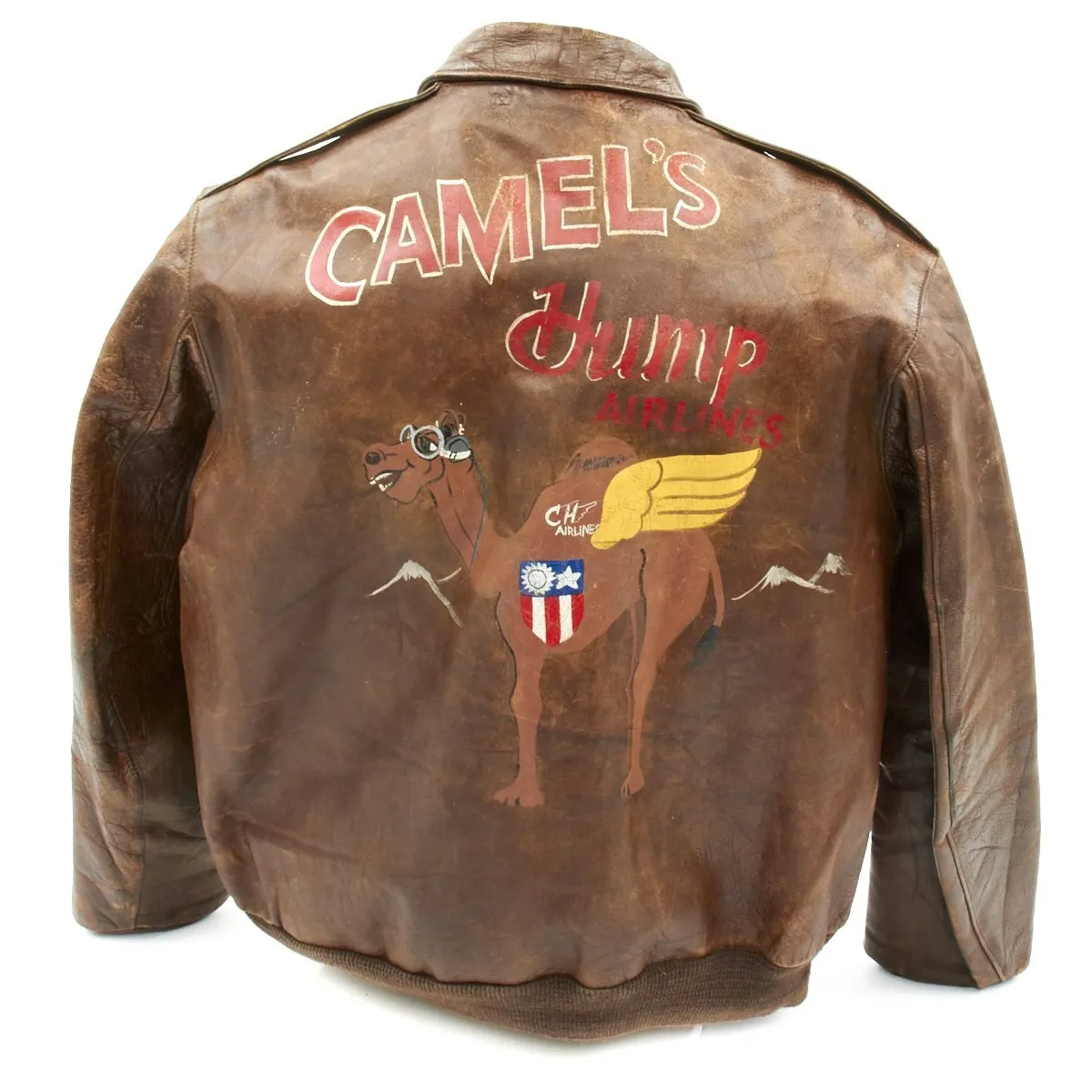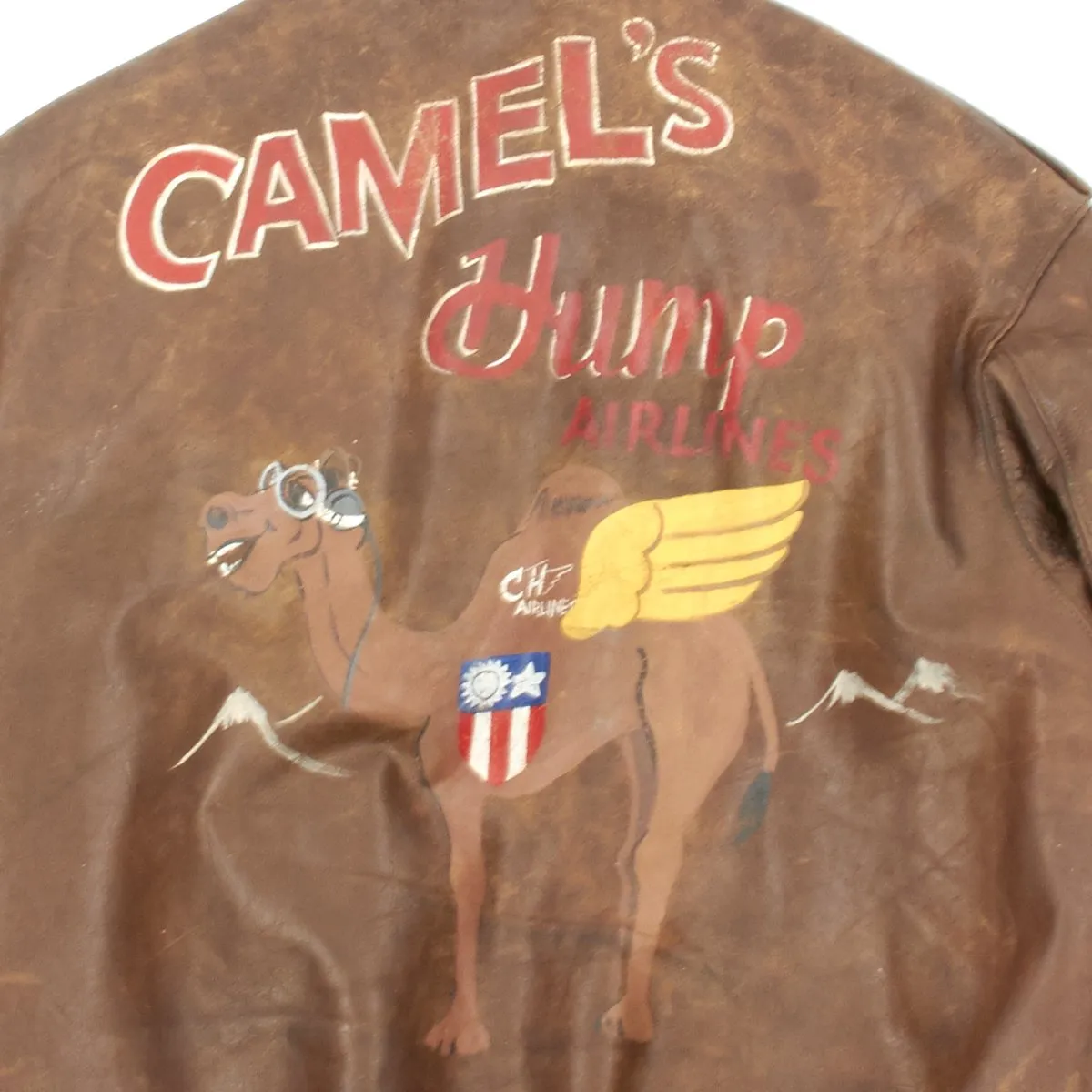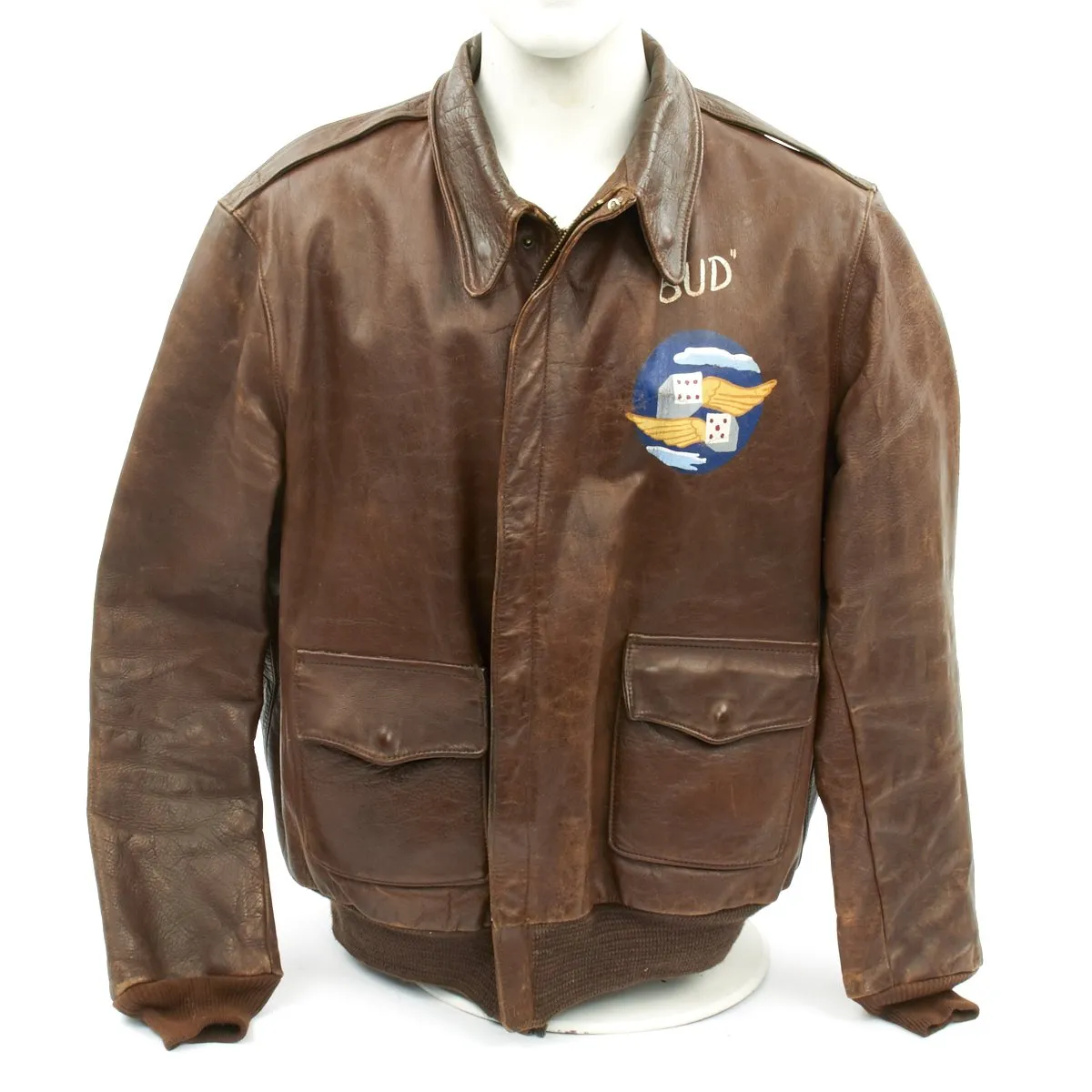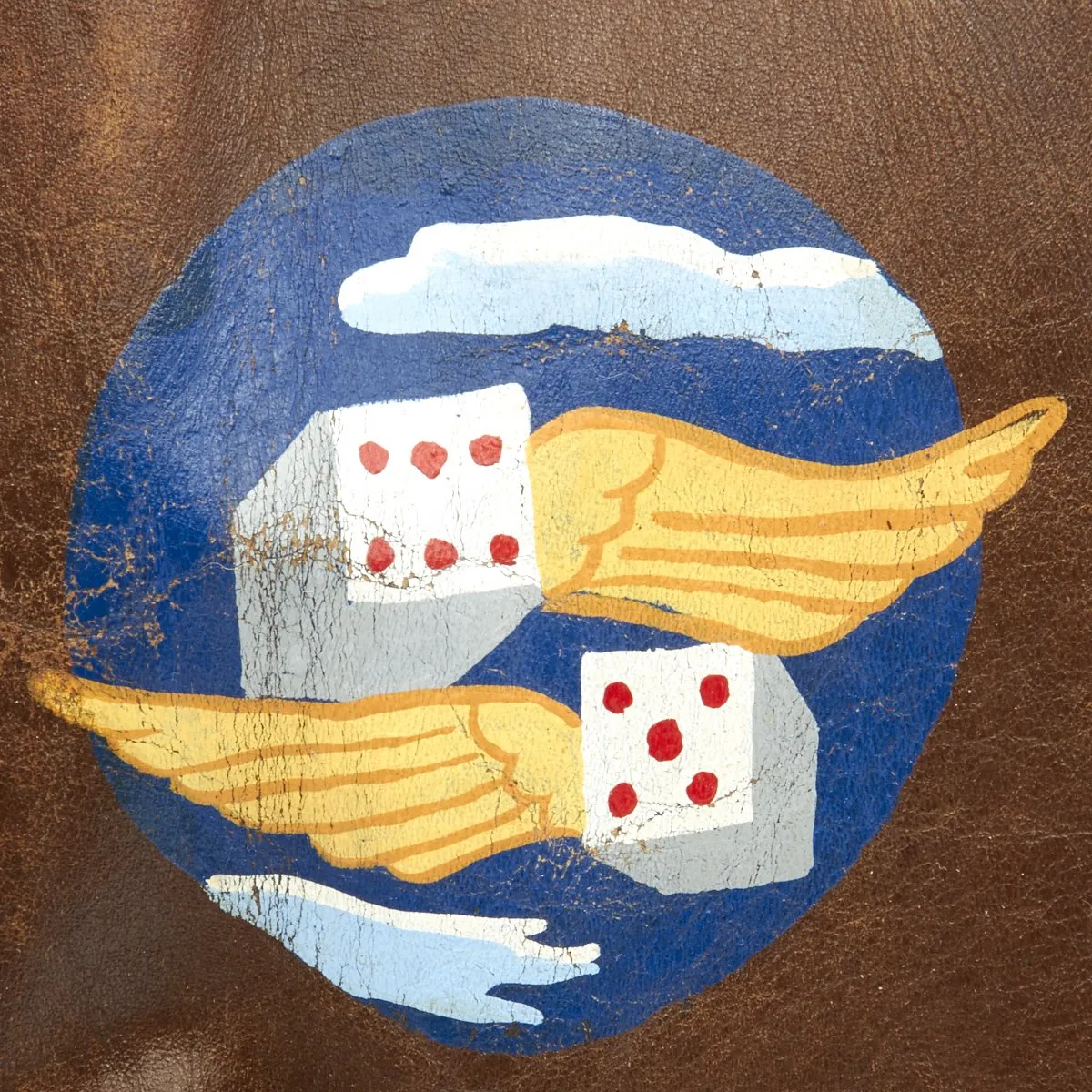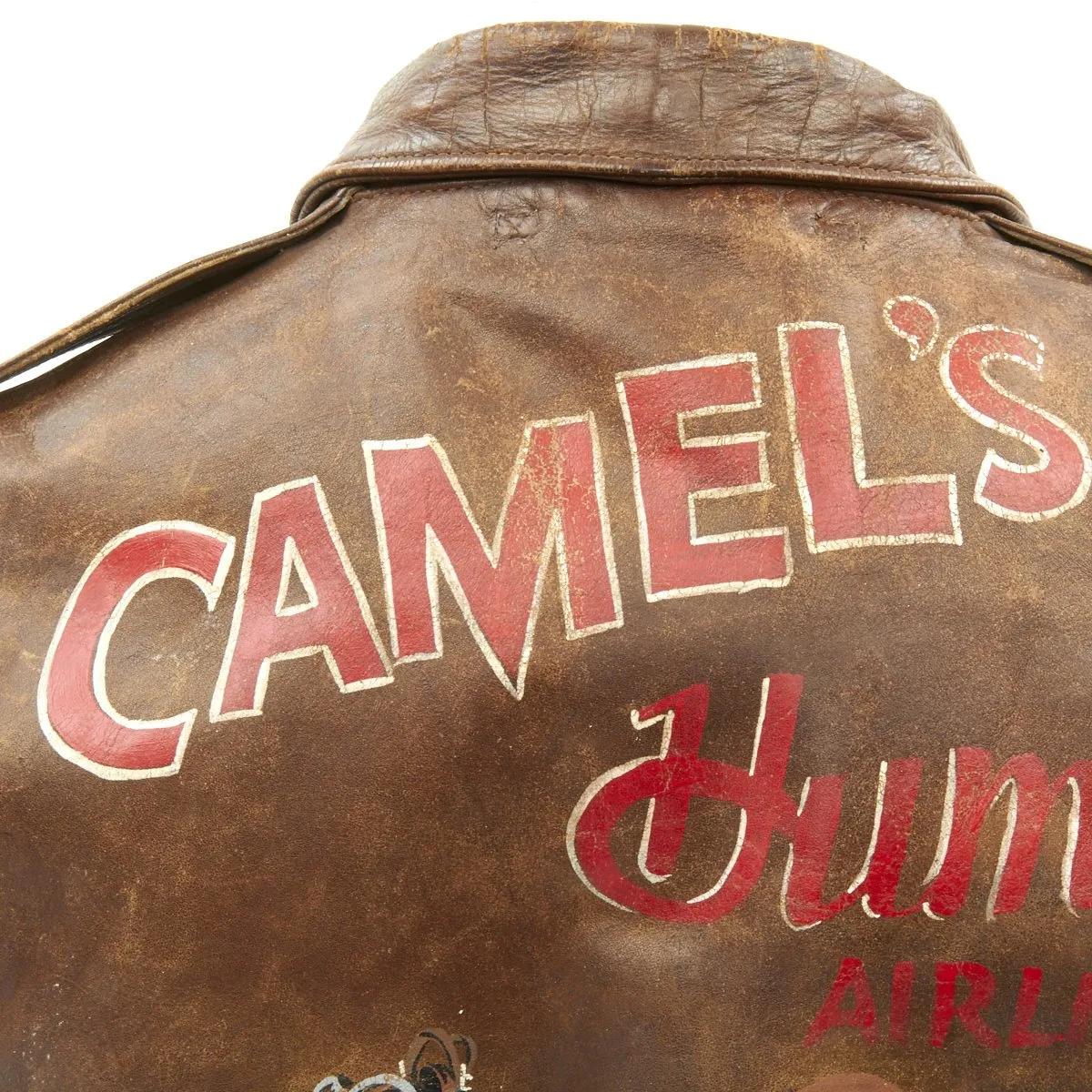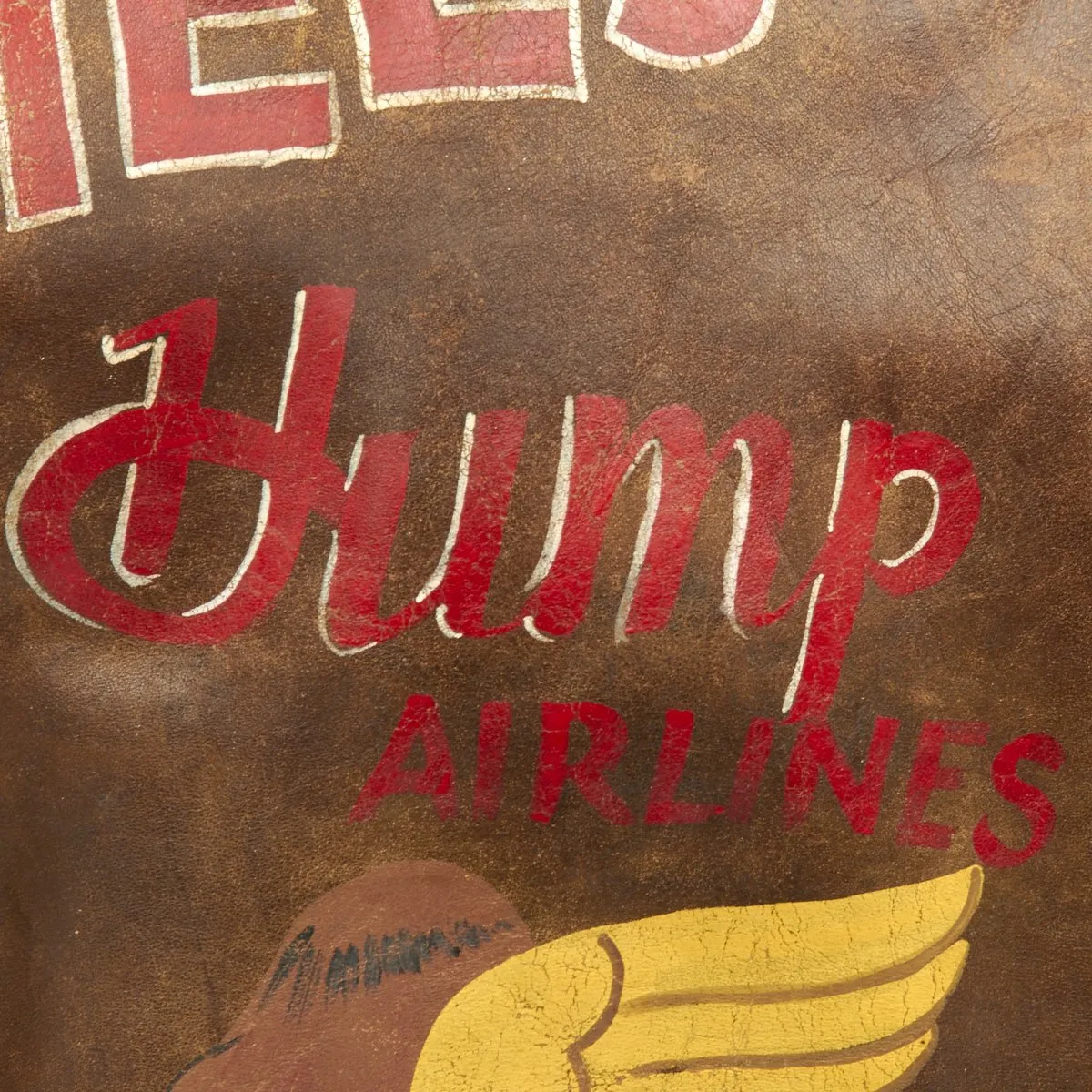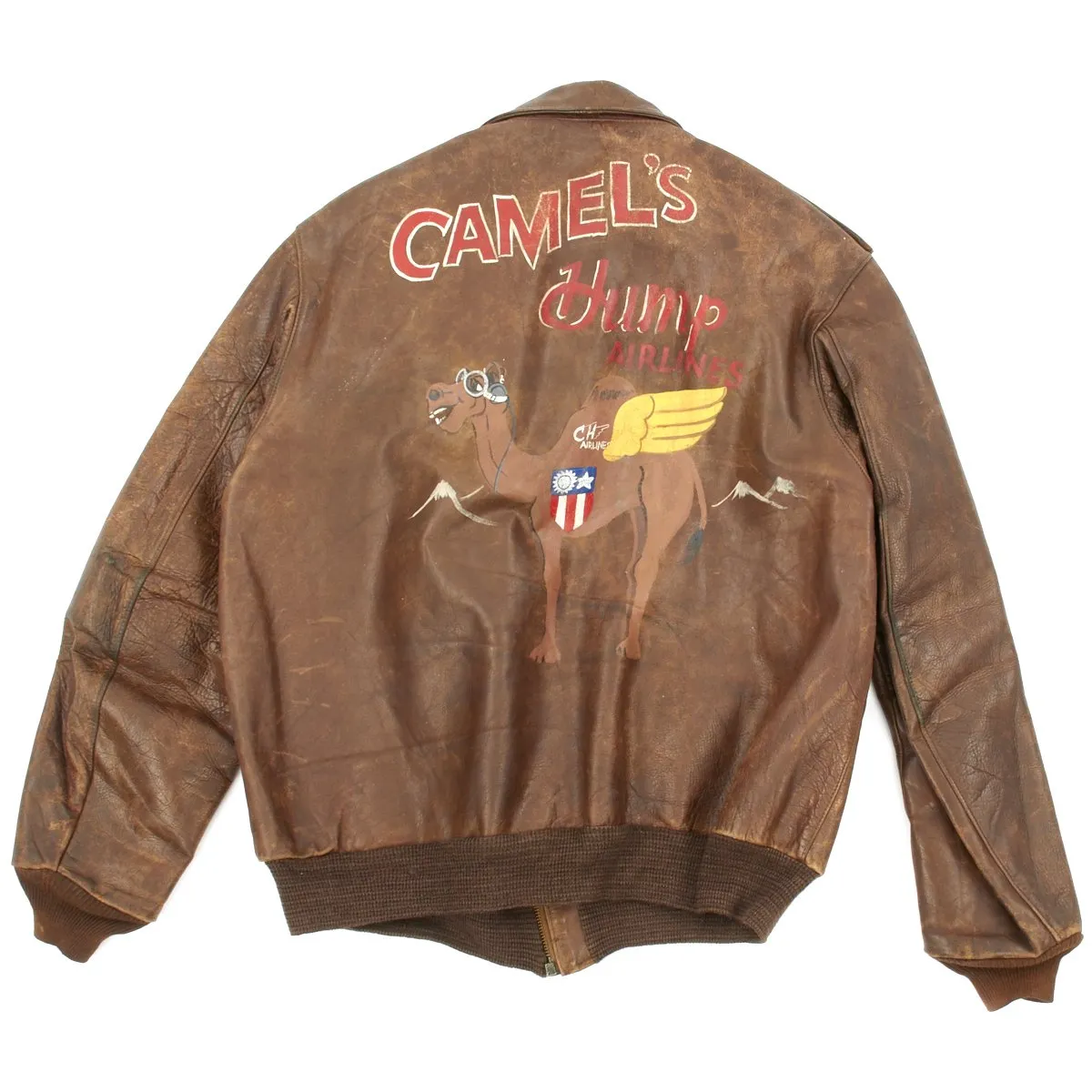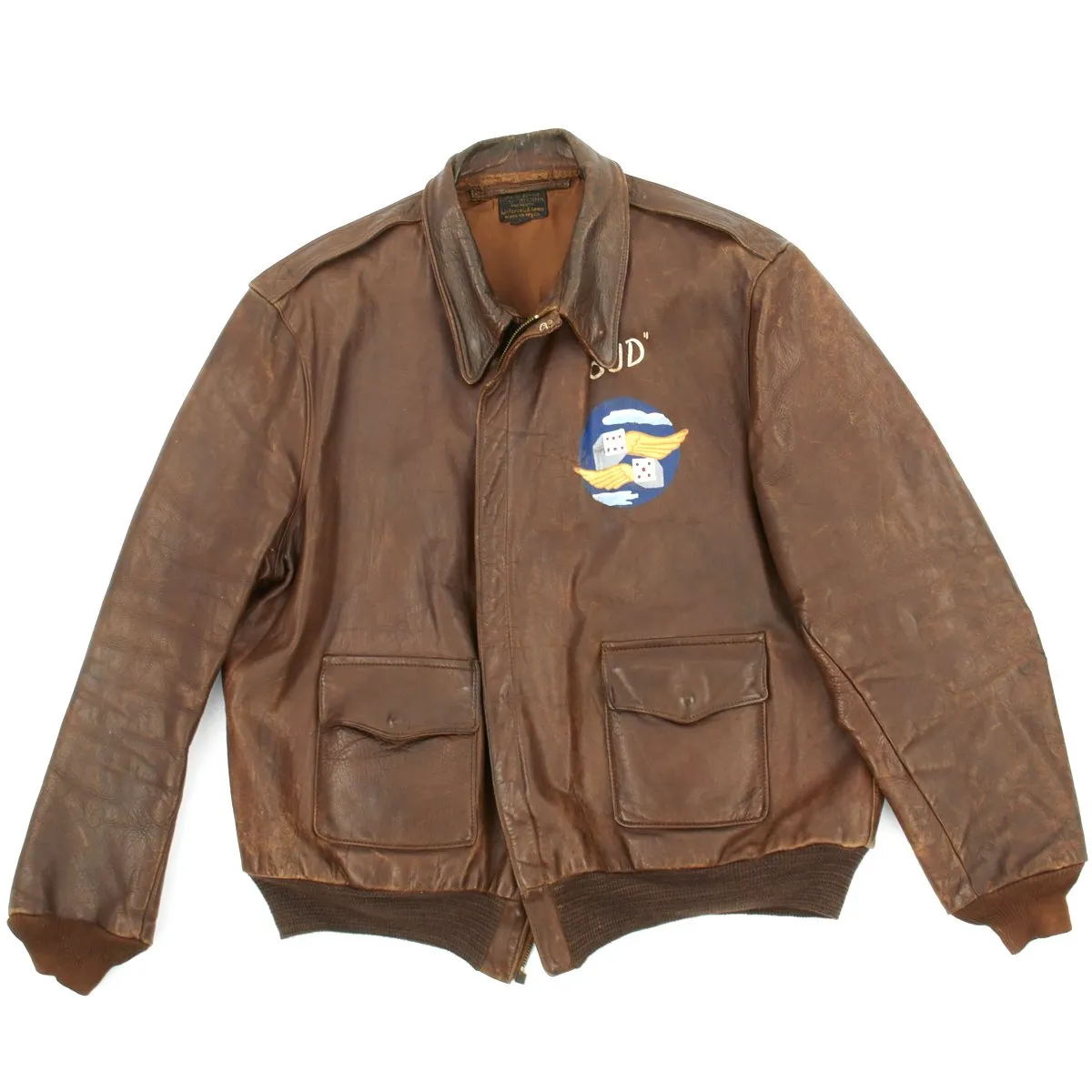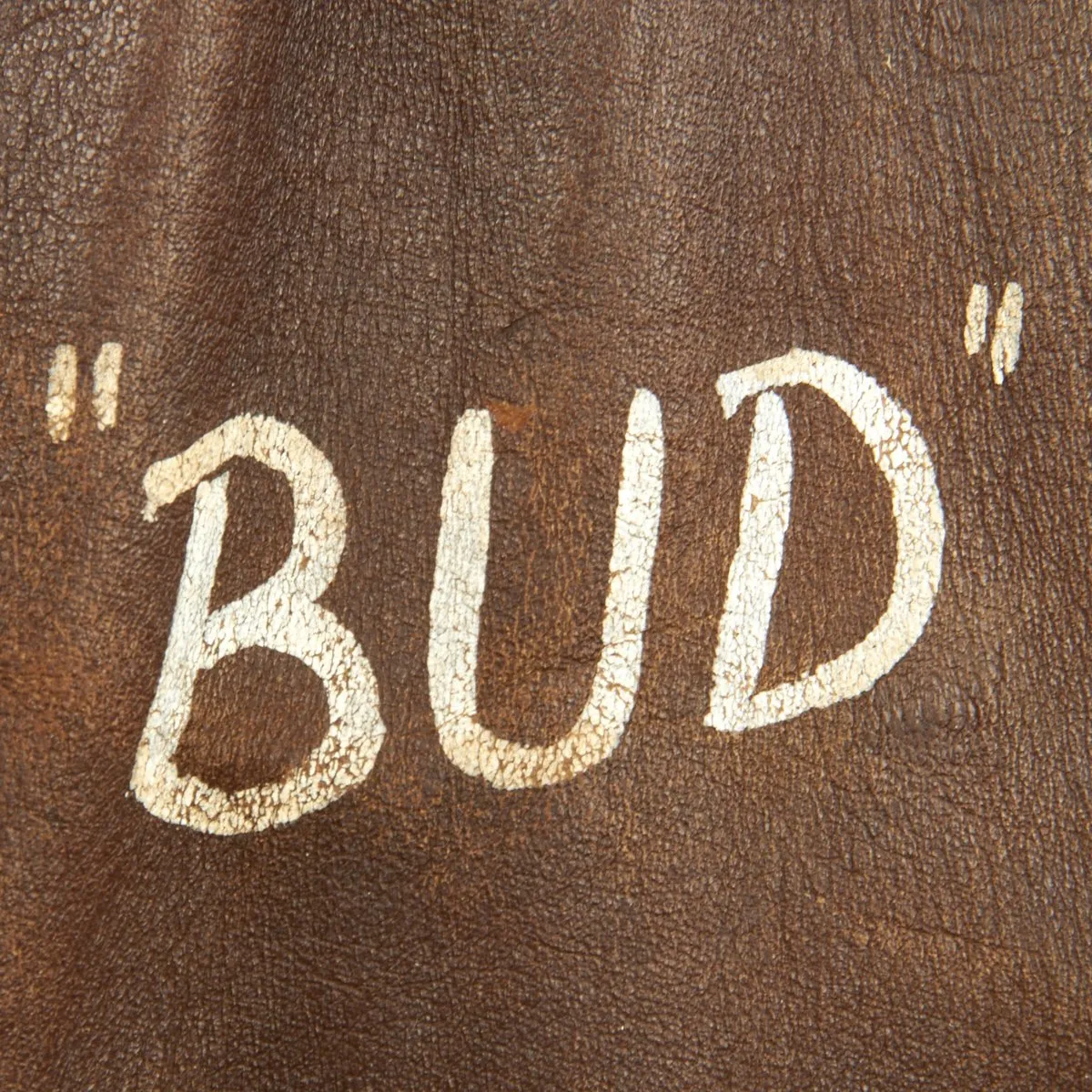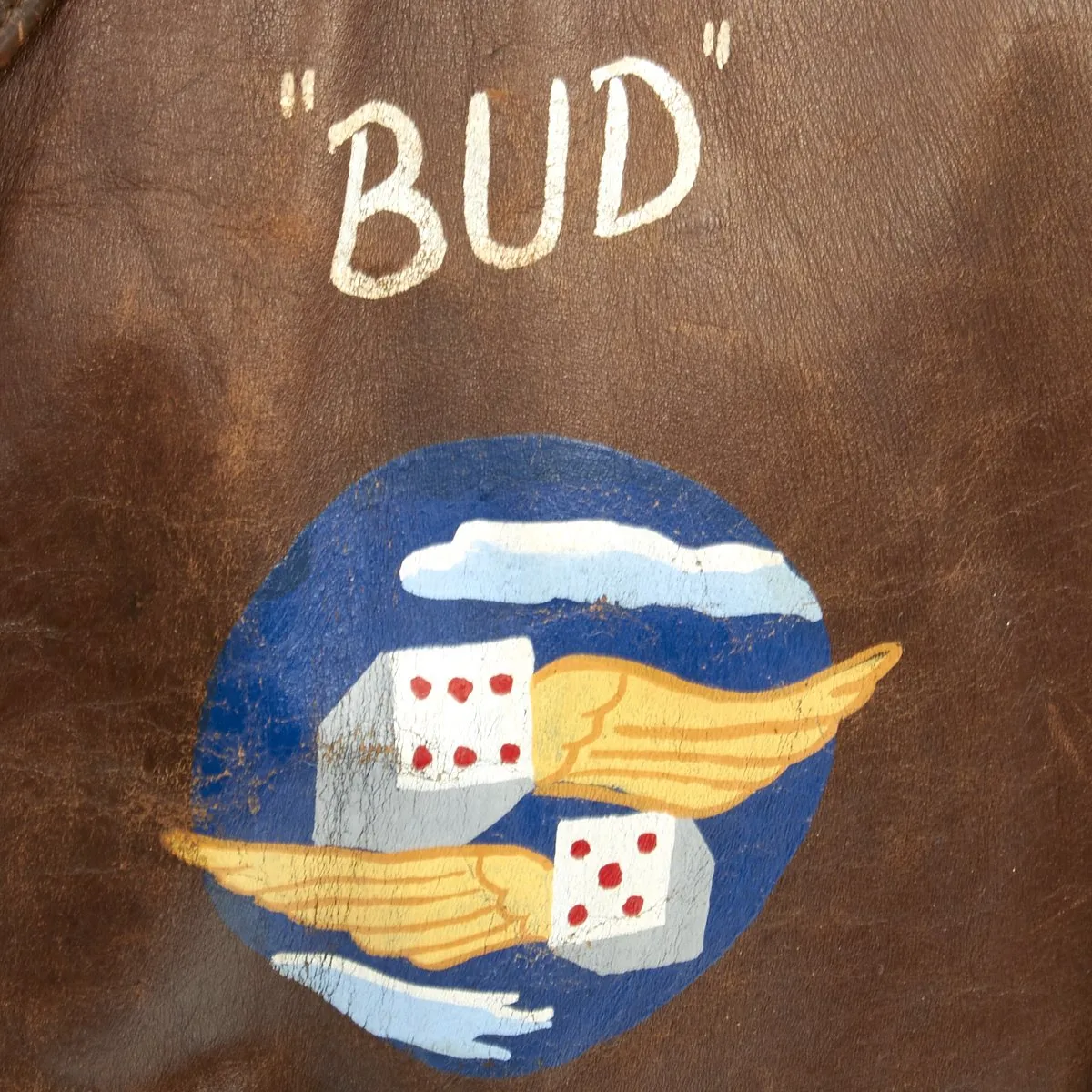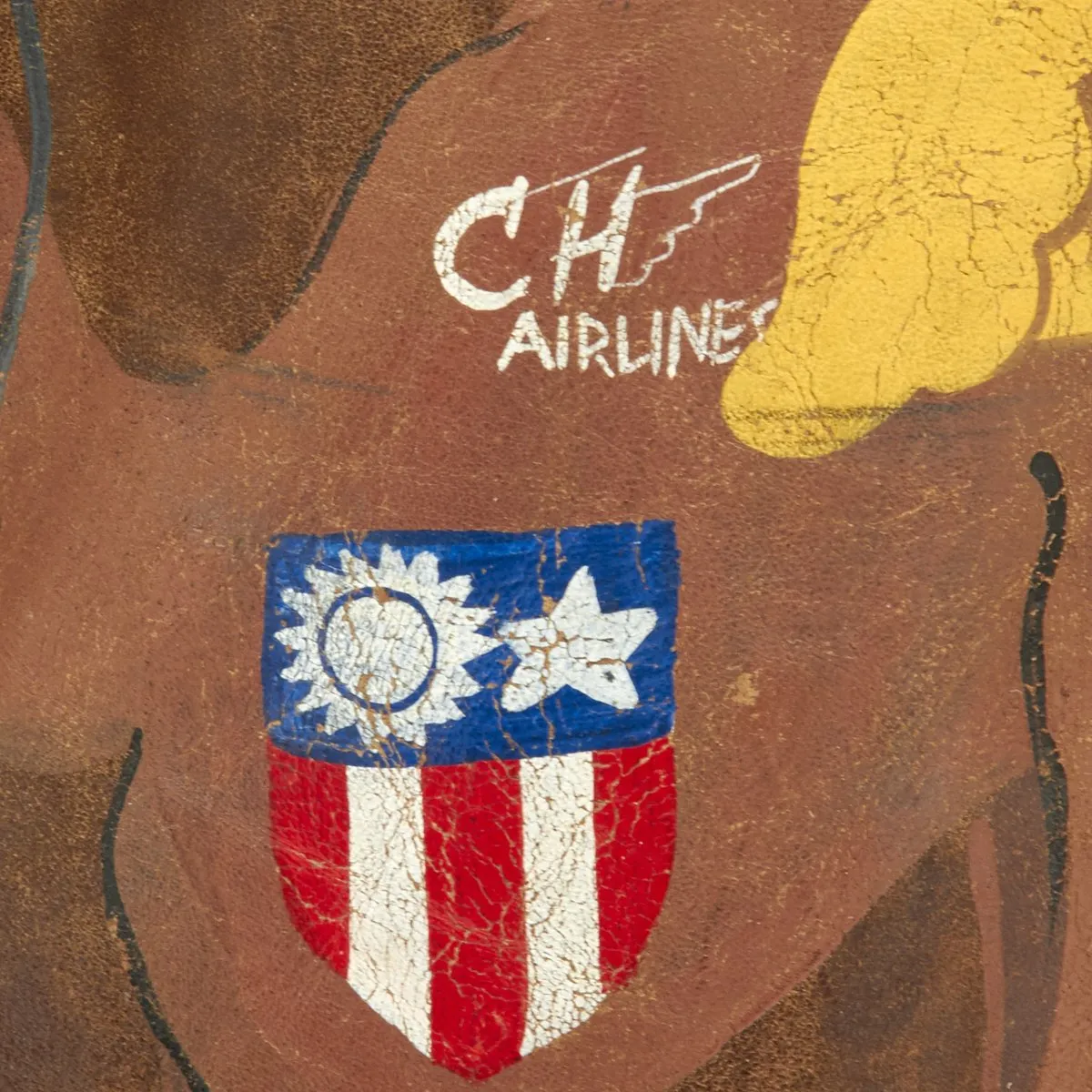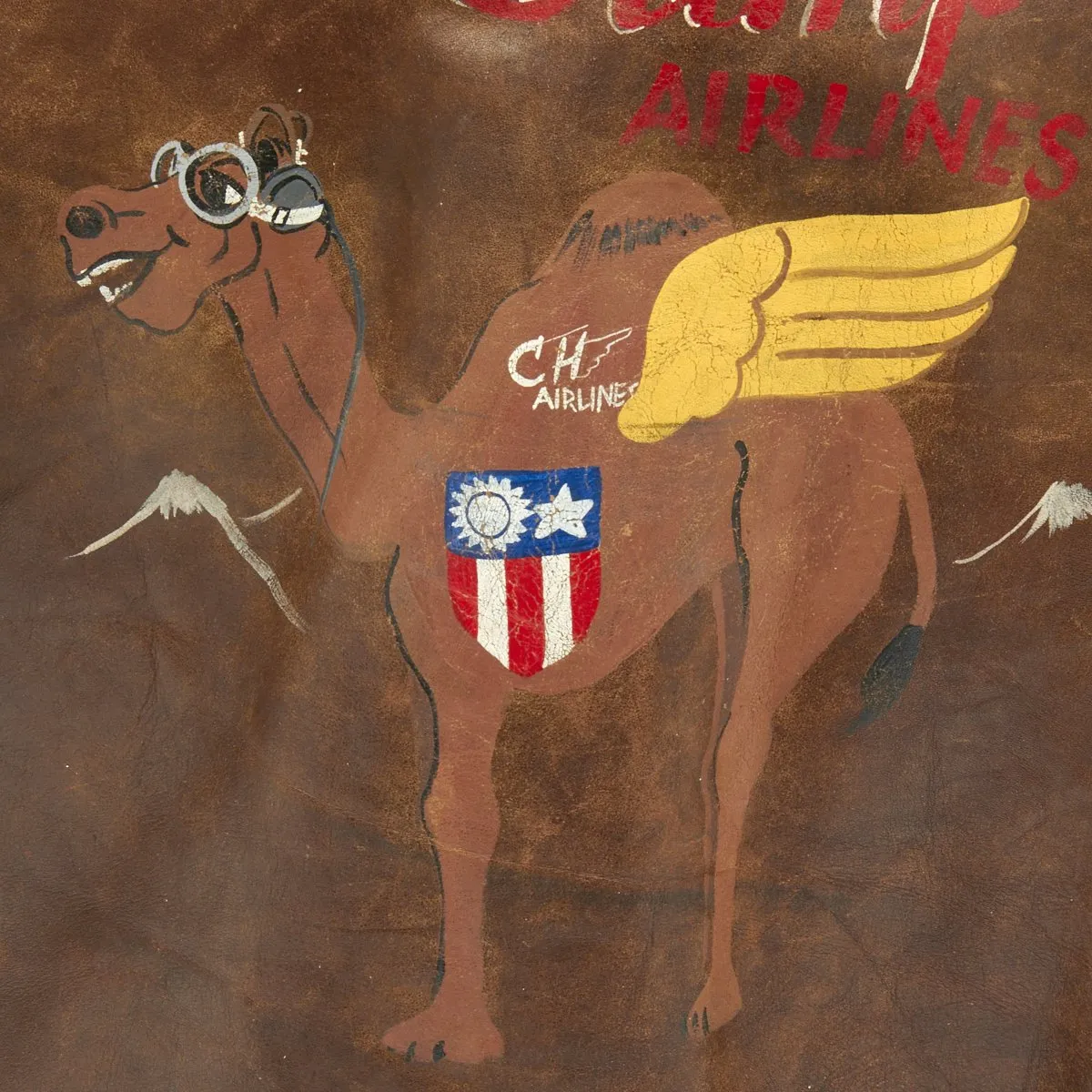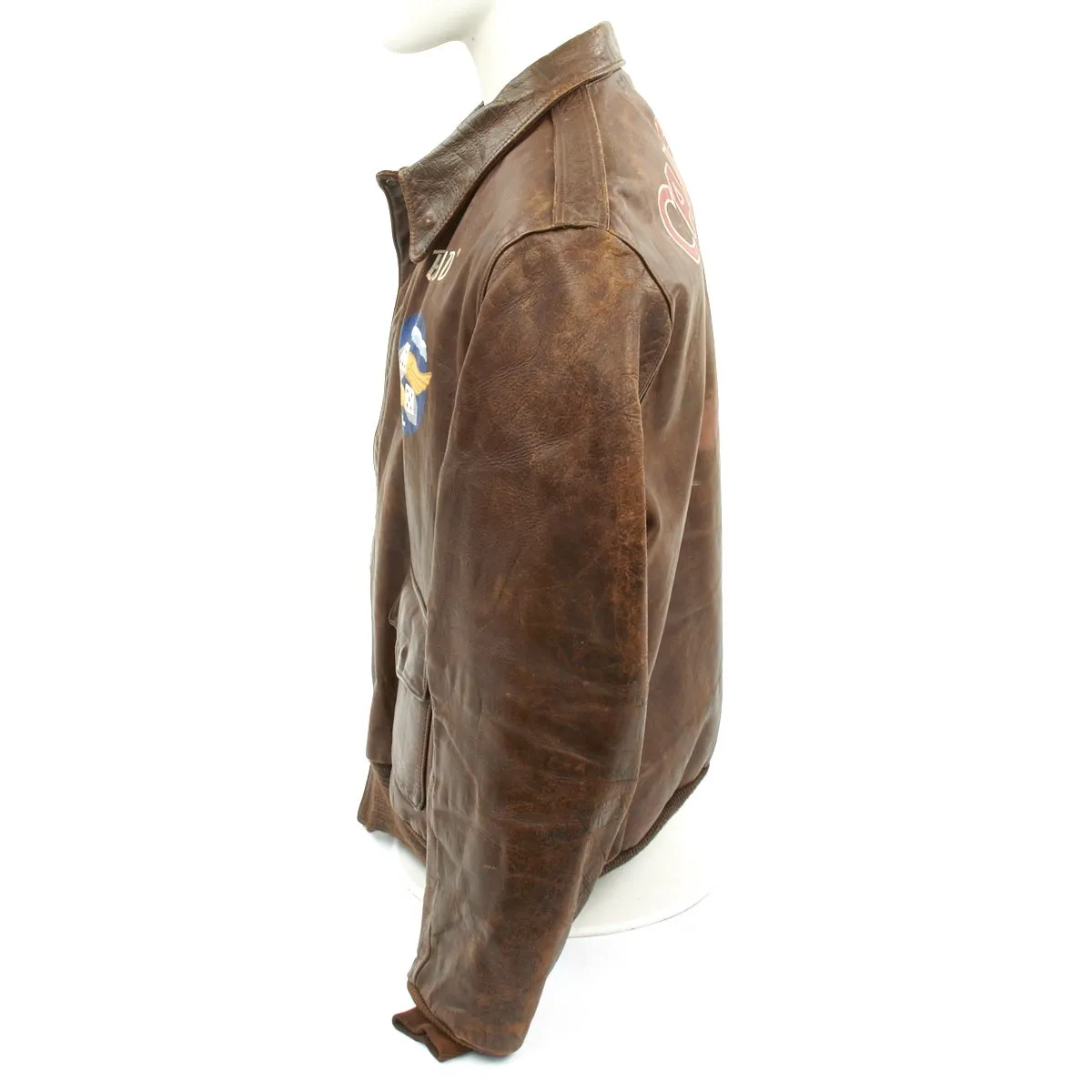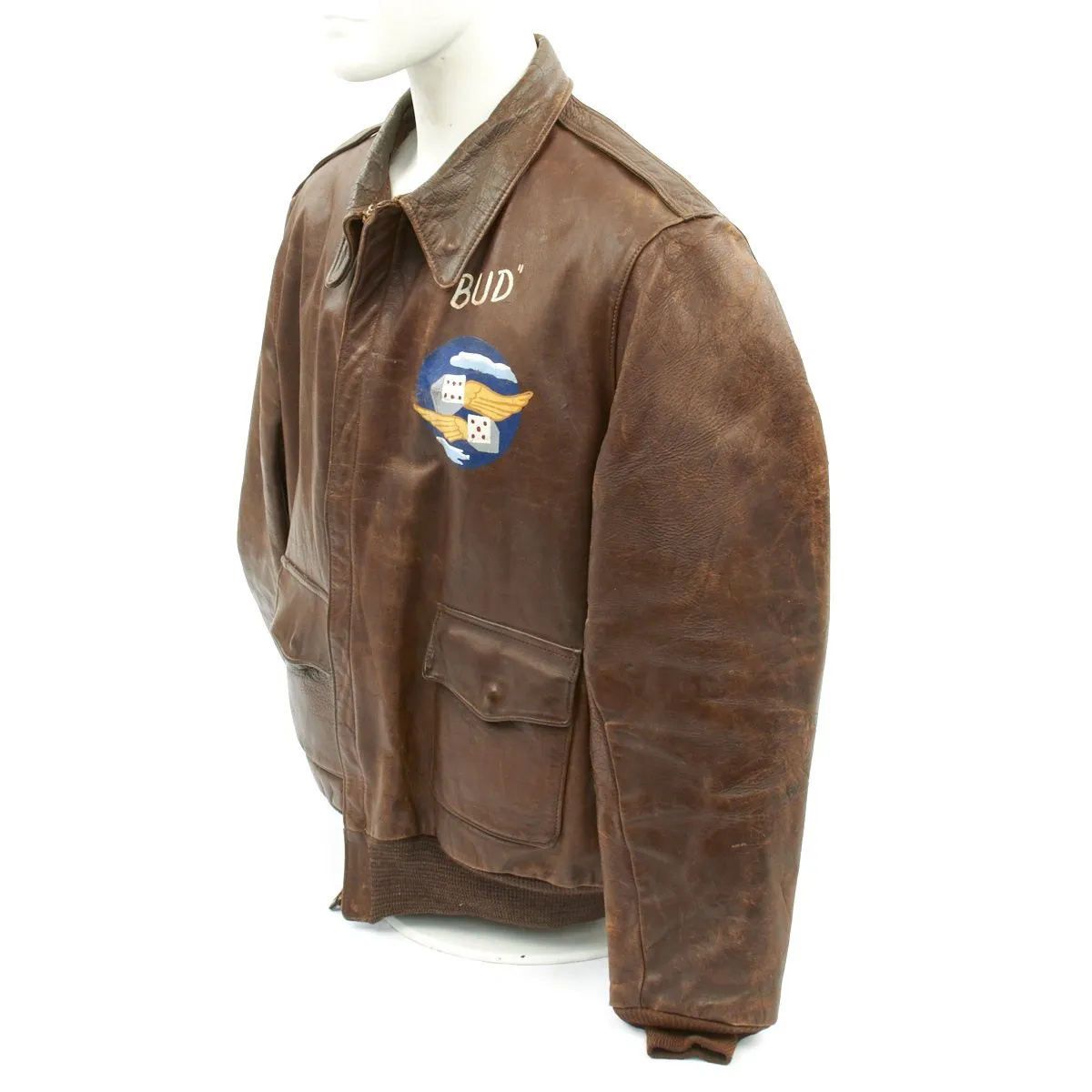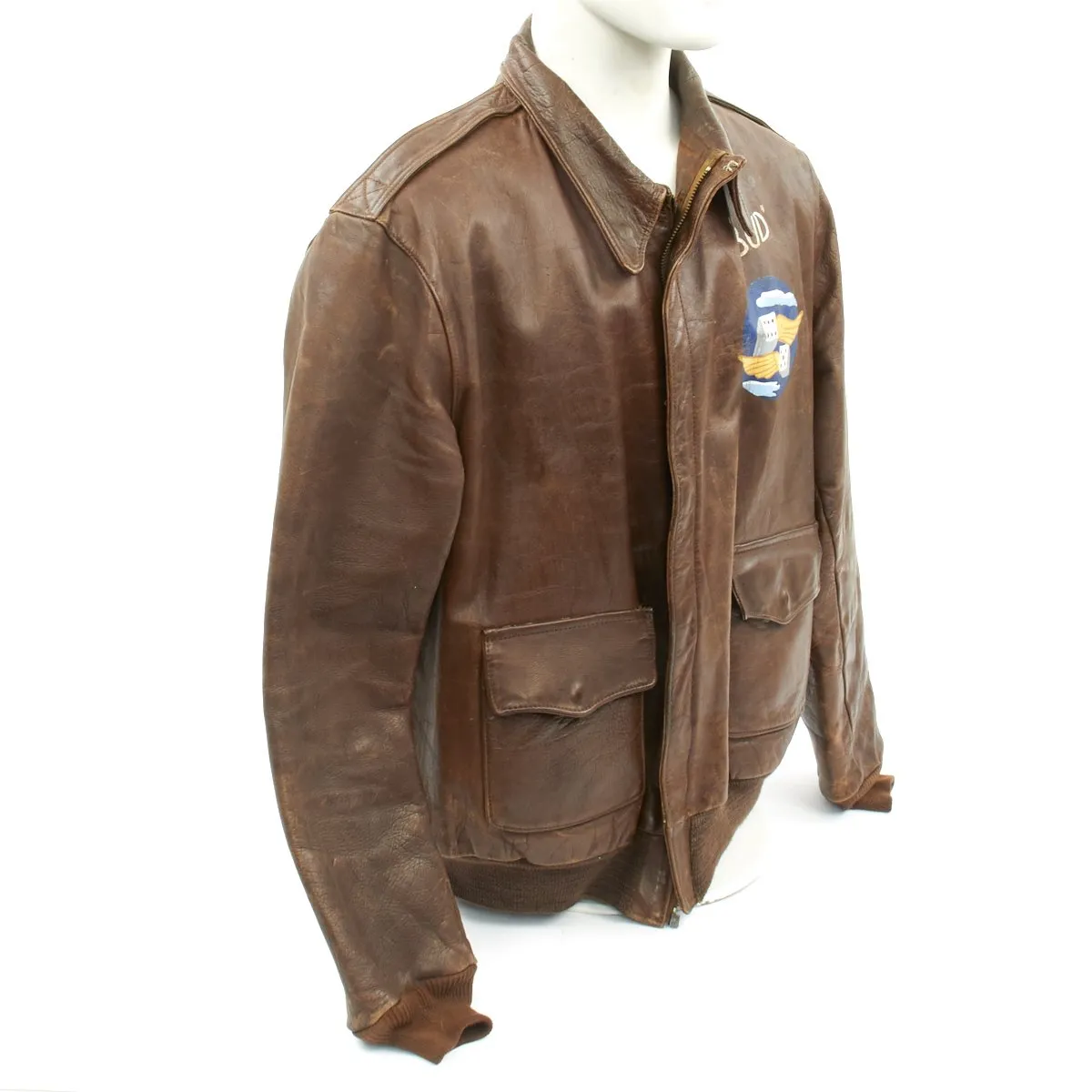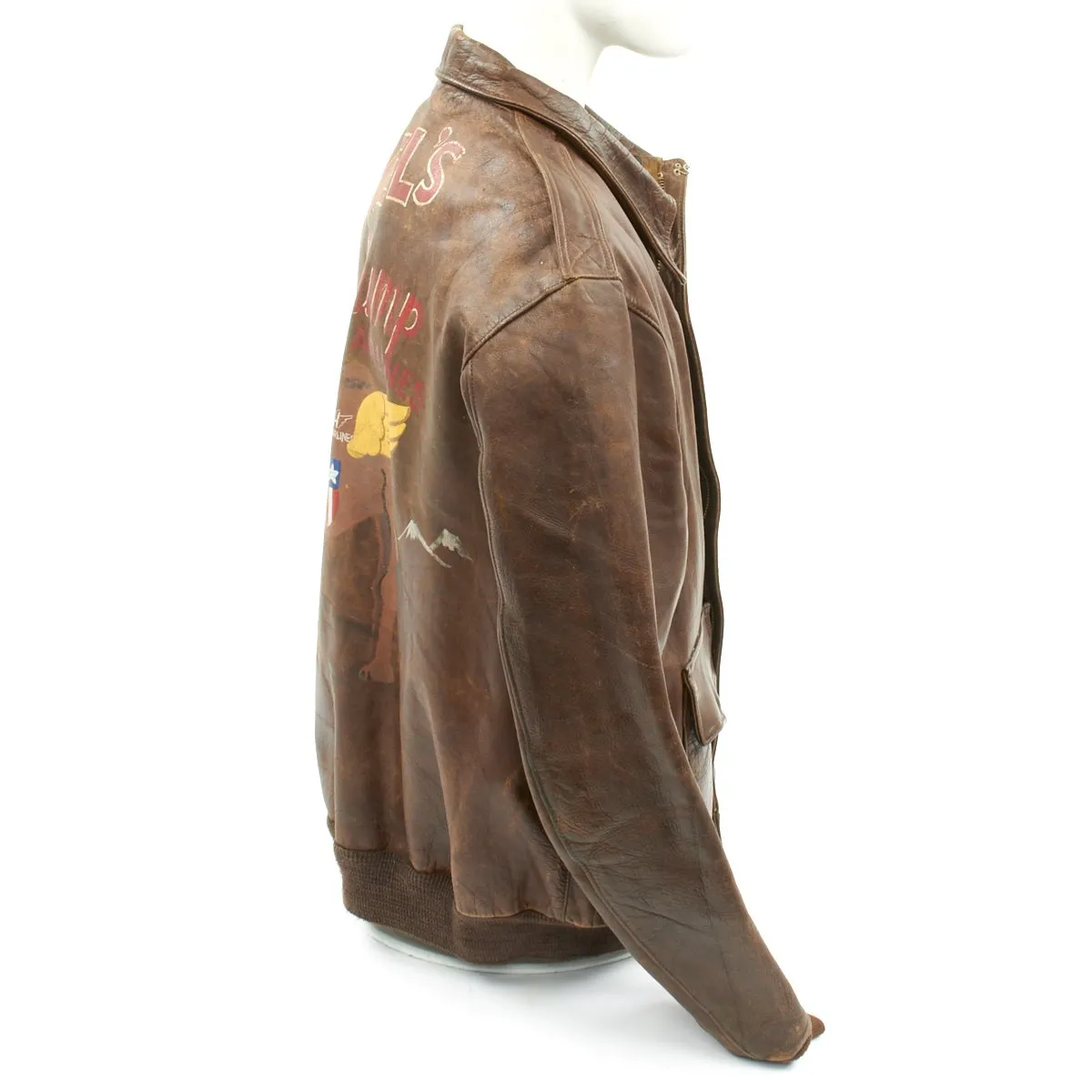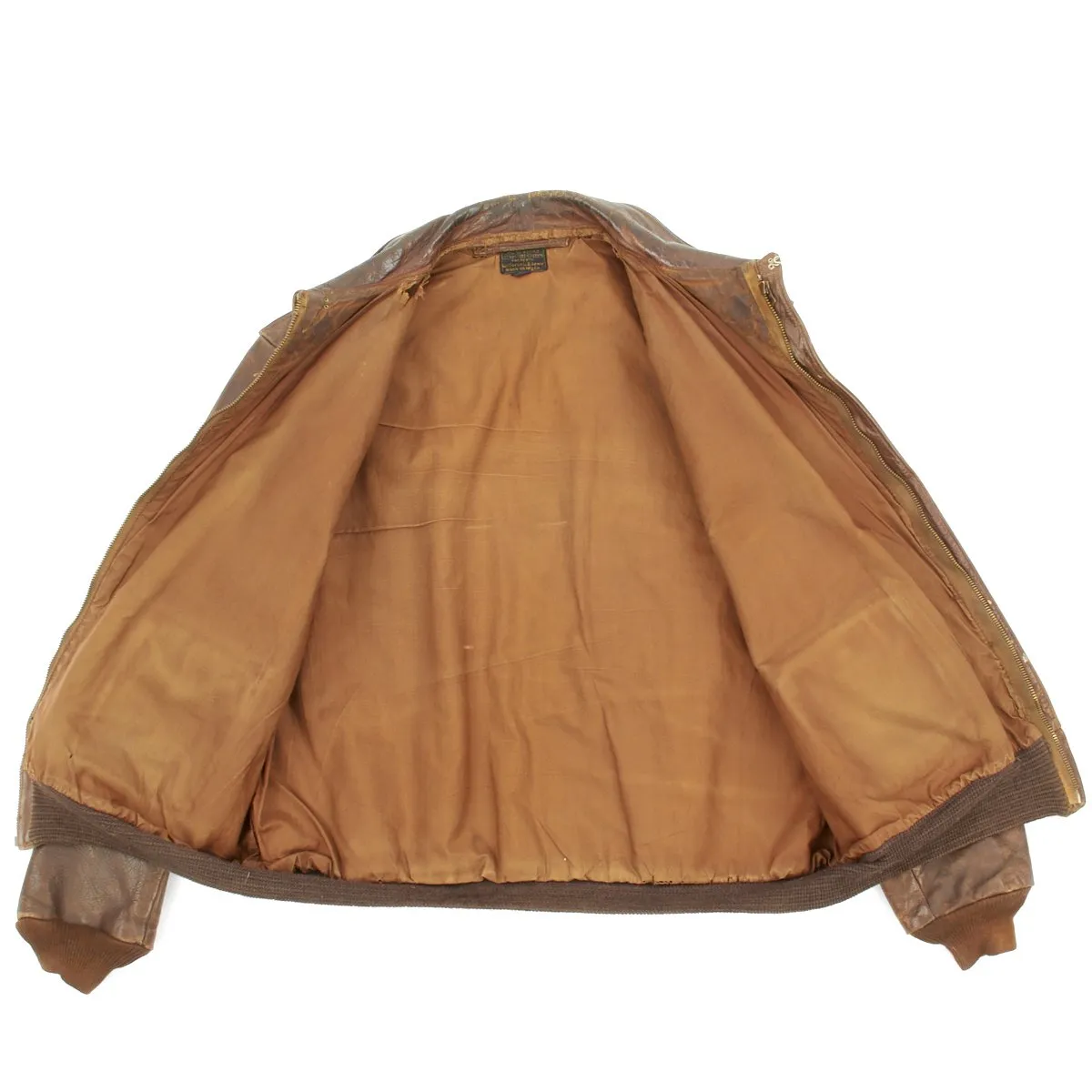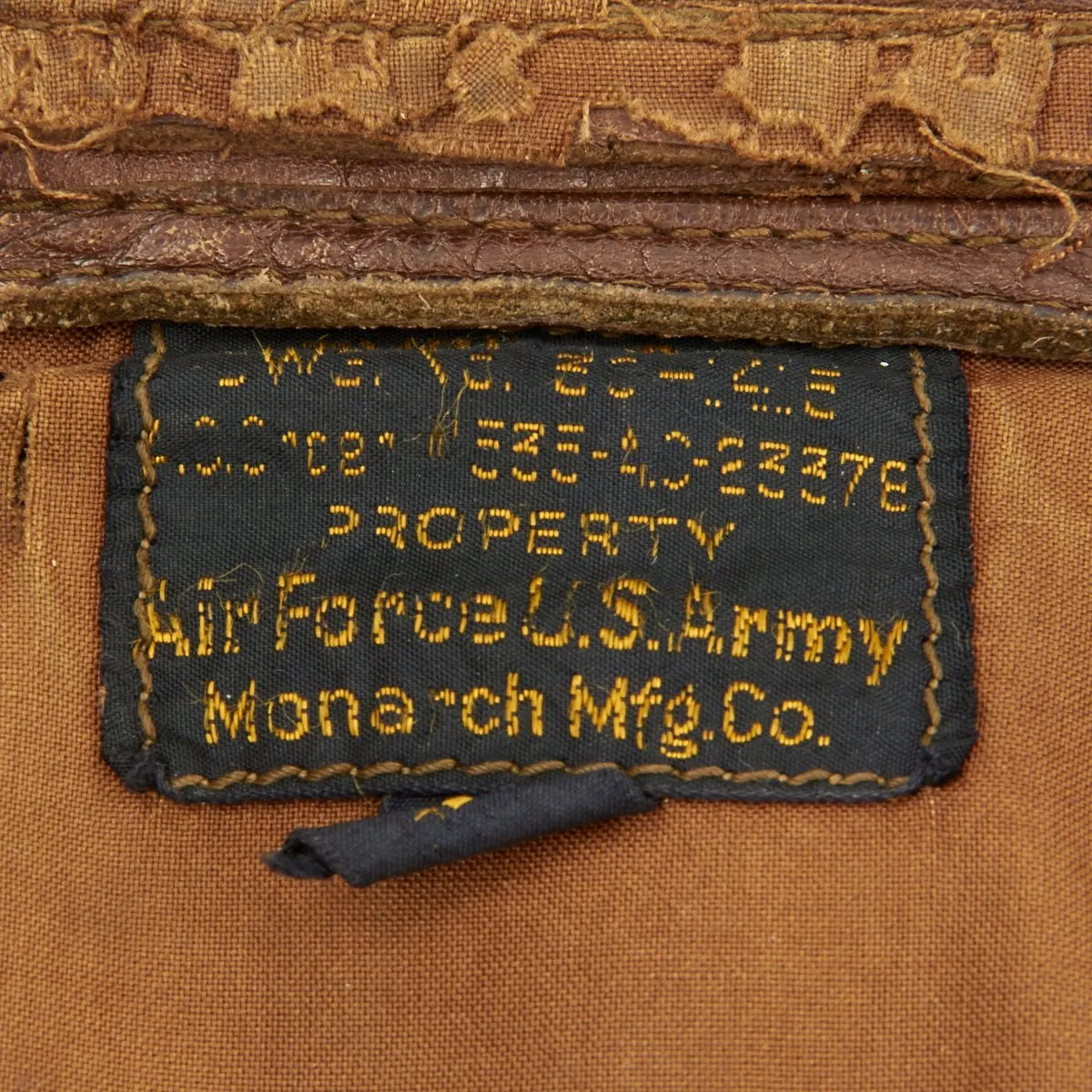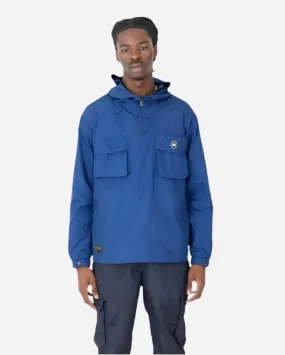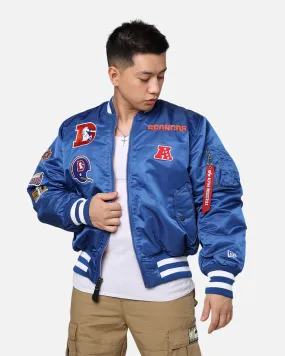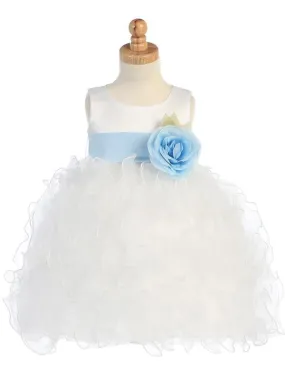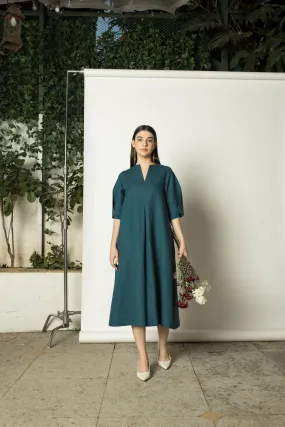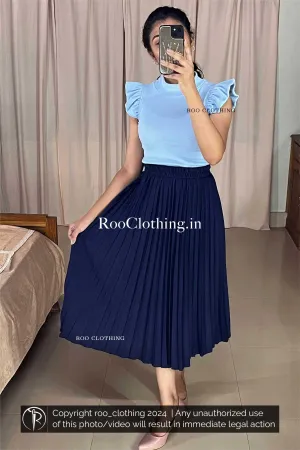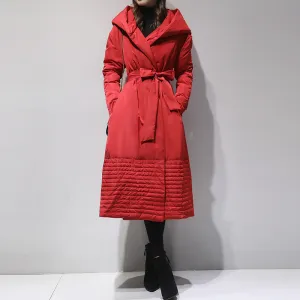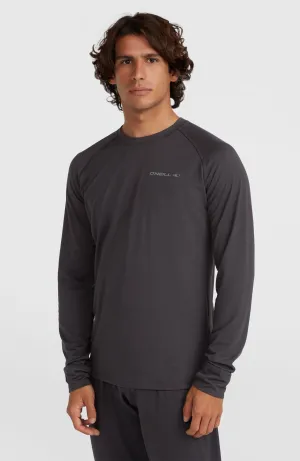Overall condition of the jacket is excellent and in a large size (44). The leather is still supple without cracking or damage. The lining is original as are the cuffs, the waist band appears to be a period replacement. The zipper is marked on the slider and handle with TALON, a known maker of quality zippers.
The original tag is still intact:
DWG. NO. 30H1415
PROPERTY
AIR FORCE, U.S.ARMY
Monarch Mfg. Co.
The 1st Air Commando Group was originally an experimental group, designed to be a self-supporting air force capable of supporting a Chindit style deep penetration. It thus had a mix of fighters, transport aircraft, bombers and gliders. Although the group performed well the rapid expansion of American air power allowed the same task to be performed by standard units types and some of the new Air Commando Groups that had been formed for Burma went to the South-West Pacific instead.
The group was formed in India in March 1944 and was originally formed into six sections - bomber section (B-25 Mitchell), fighter section (P-51 Mustang), light plane section (Stinson L-1 Vigilant , Stinson L-5 Sentinel and early helicopters), transport section (C-47), glider section (Waco CG-4A and TG-5 Grasshopper) and light-cargo section (Noorduyn UC-64 Norseman). After its first burst of operations the group was withdraw and reorganised and by the end of 1944 consisted of two fighter squadrons, three liaison squadrons and one troop carrier squadron.
The group entered combat almost immediately, operating in support of Wingate's men behind Japanese lines. It carried out a mix of supply drops and casualty evacuations to directly support the troops as well as attacking Japanese airfields and transport links. The group was awarded a Distinguished Unit Citation for its actions between March 1944 and the end of the first phase of operations in May 1944.
The group was caught up to a certain extent in the complex command arrangements in India and Burma. As late as November 1943 it was the only USAAF that was officially committed to Mountbatten's South East Asia Command - all other American units in the area reported either to the American chiefs of staff or to Chiang Kai-shek.
By the autumn of 1944 the group formed part of the Combat Cargo Task Force, which reported to the Fourteenth Army and in October 1944 had 167 transport aircraft provided by the 1st Combat Cargo Group, 1st Air Commando Group and No.177 Wing, RAF.
In December 1944 the group was used to fly Chinese troops and their supplies back to China from Burma. For the rest of the war it was used to support Allied troops in Burma, flying a mix of supply, casualty evacuation and liaison duties.
As well as transport missions the group took part in standard ground attack missions. In May 1945 it was involved in the attacks on the rail network on Formosa, destroying two engines in an attack on 28 May. The group was used to attack Japanese troops, transport links and oil facilities across Burma and also provided some fighter escorts early in 1945.
The group returned to the United States in October 1945 and was inactivated on 3 November 1945.

